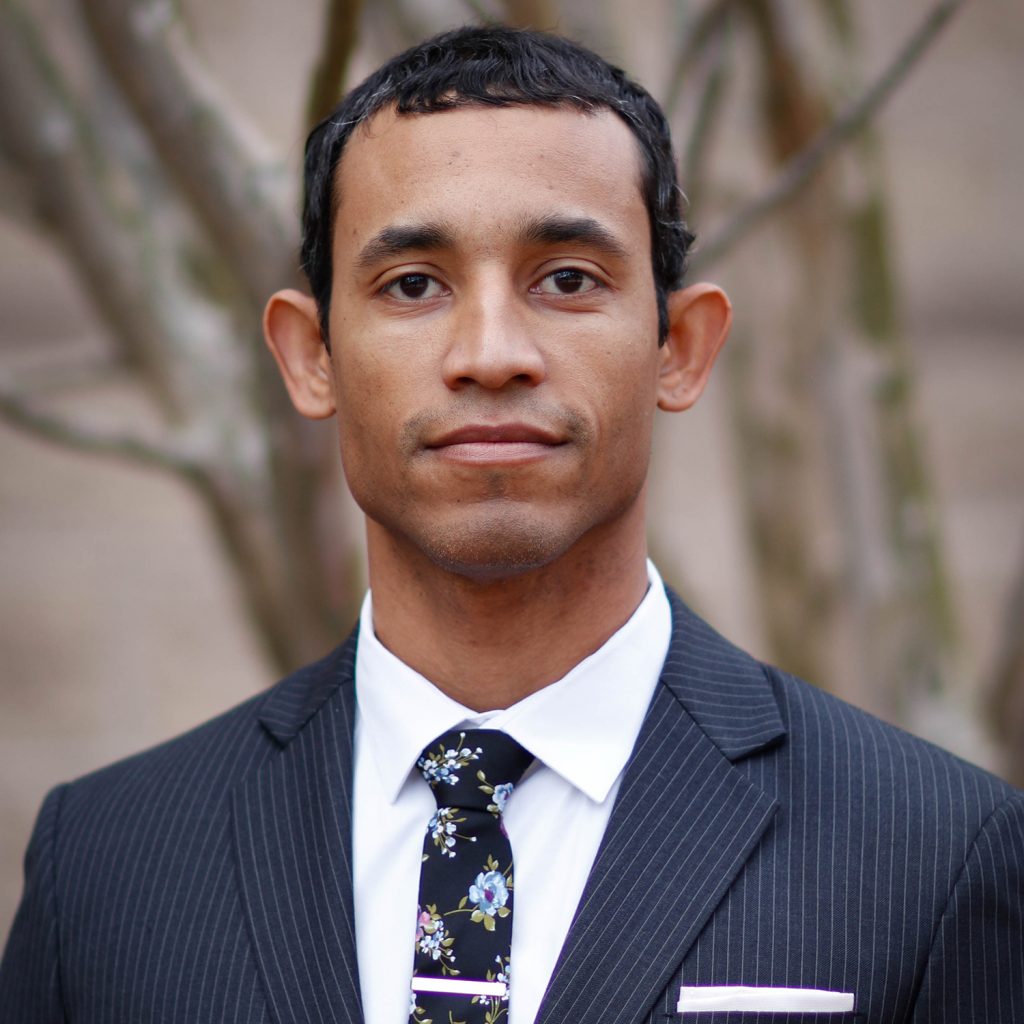Each month, our Outreach Team highlights a current student who is innovating to positively advance the department’s mission while excelling in their studies at Tufts.
This month, Outreach Coordinator Nick Woolf interviewed Ph.D. candidate Chaveso “Chevy” Cook to learn more about his time at E-P and his new non-profit, Military Mentors. He was also recently selected into the Institute for Nonprofit Practice’s Community Fellows Program, a pretigious one-year program that I invests in the next generation of nonprofit and community leaders dedicated to social change.
Who: Chaveso “Chevy” Cook
Graduation Year: 2021
Program: Child Studies and Human Development, Ph.D. Candidate
- Doctoral focus on character development.
- Advised by Professor Richard Lerner in the Institute for Applied Research in Youth Development.

Nick: Tell me about your path — what brought you to Tufts, and what were you doing prior to enrolling?
Chevy: I grew up in a stereotypical 80s, low SES, black neighborhood around drugs and violence. We knew “the code of the streets”, which meant not trusting authority figures, never snitching, and loyalty to your homeboys. Fast forward to college and I ended up attending the United States Military Academy (USMA) at West Point, which touted very different paradigms; ideas like “a cadet will not lie, cheat, steal nor tolerate those who do”, “duty, honor, country”, and character. It changed my life and who I was. I then entered the Army, eventually returning to West Point to teach freshman psychology. After returning to the Army again for a few years I was hired for a senior teaching position, so West Point sent me to get a PhD. I now have 16 years of service in the Army, with about a dozen in the special operations community.
Nick: What types of research and/or applied work are you involved with at E-P?
Chevy: I study character development, specifically the development of cadets at my alma mater, USMA. I am the lead qualitative research assistant for Project Arete (Greek for ‘excellence’), a partnership between Tufts and USMA. It is a multi-year, multi-method, longitudinal study of the character development of West Point cadets. I also apply my studies of human development directly into my nonprofit to better shape our approach.
Nick: What was the genesis for/inspiration behind your new non-profit?
Chevy: The challenge for us is that while our military forces are uniquely trained and equipped, service members are each unique developmentally and continually need to be honed professionally. There services tend to saddle the individual with his/her own self-development, however, and hope that mentor relationships fill any gaps. Unfortunately, most of these relationships lack authenticity and developmental rigor. We find the same challenges across the corporate world. Mentoring just becomes another ask on a long to-do list; more detrimental than beneficial. A mentee of mine recognized this about five years ago and came to me to help him co-found our nonprofit so we could address this challenge. I now am the executive director.
Nick: What is the non-profit’s mission?
Chevy: Our mission is to redefine the practice of leadership by refining the art and science of mentorship.
Nick: What is your hope in terms of future impact for Military Mentors?
Chevy: Our answer to the challenge I presented above is to stretch the conversation around mentorship to ultimately improve the never-ending developmental cycle involving leaders and leadership. We want to impact the design and implementation of developmental strategies for both leaders (individual knowledge, skills, and abilities) and their leadership (social capacities). The means for doing so currently comes via our blog, social media sites (Facebook, Twitter, Instagram, LinkedIn), various publications, regular community involvement, keynote presentations (three this fall as of late), organizational consultation, and upcoming podcast.
Nick: Do you have any advice, tips or words of wisdom to current E-P students?
Chevy: Remain present minded but future focused. Strive to live in the moment whether in class or in the lab, in Davis Square or in your dorms/apartments, connecting with the people around you. But don’t forget that you’re going somewhere, and all efforts aren’t true progress (running 50 yards the wrong way on the football field earns the other team points, for example). Enjoy Tufts but know that it can’t last forever.

 ABOUT
ABOUT